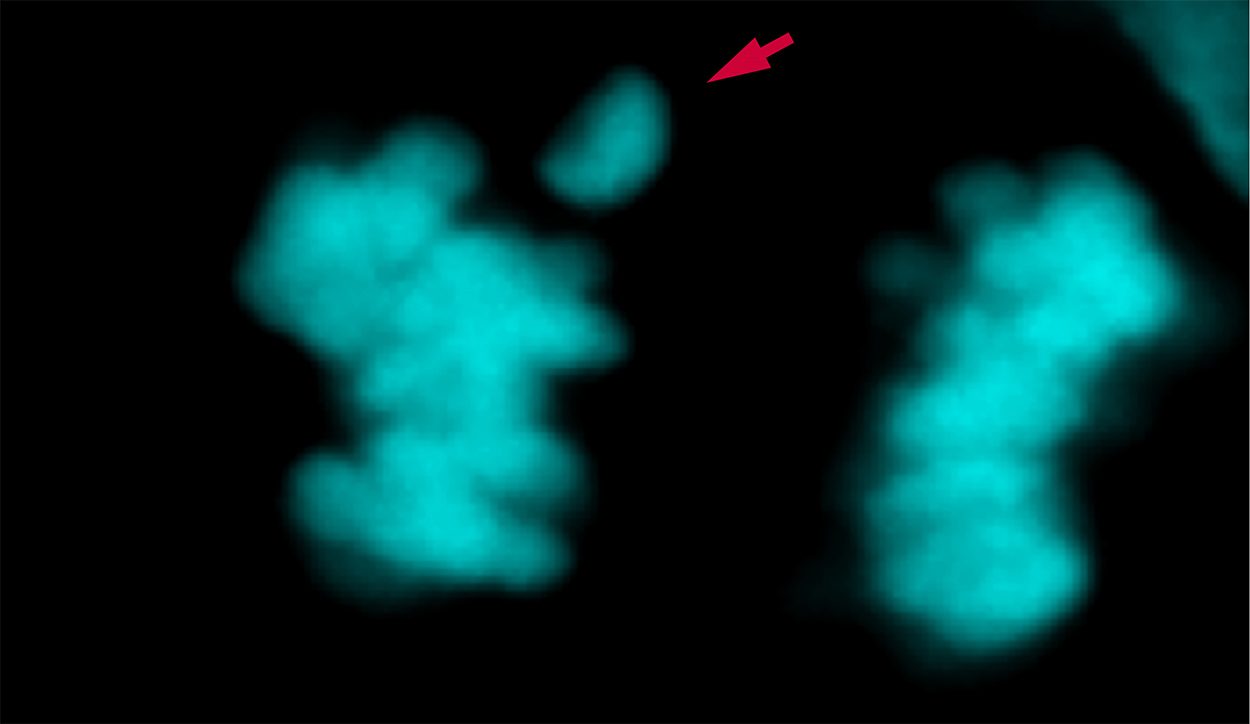Modern humans differed from Neanderthals in about 100 amino acids, but the specific biological consequences of this remain unclear. Researchers have now identified six of these human mutations that benefit our species. Experiments in mice and brain organoids have shown that these changes contribute to a more accurate arrangement and division of chromosomes during cell division. As a result, false divisions occur less frequently. Since proteins containing these variable amino acids are constitutively active during the embryonic development of our brain, this may have contributed to the superior brain function of Homo sapiens.
Neanderthals and Denisovans were our closest relatives and were similar to Homo sapiens in many ways. They, too, already have relatively large brains, use tools, and have successfully spread throughout most of Eurasia. However, they died, leaving Homo sapiens as the only remaining human species. but why? It is known that these early humans differed genetically from us through changes in the code for about 100 amino acids. However, the functions of the proteins affected by these changes and the biological differences this brought to Homo sapiens are largely unknown.
Three proteins under examination
A team led by Felipe Mora-Bermudes of the Max Planck Institute for Molecular Cell Biology and Genetics in Dresden examined six of these changes in newly acquired amino acids by Homo sapiens. These amino acids are found in three proteins that are particularly active in the developing fetus in the neocortex, the evolutionarily smallest part of our cerebral cortex. “These three proteins stand out because they carry amino acid changes common to all modern humans but not to great apes, Neanderthals or Denisovans,” the scientists explained. “So each functional outcome of the amino acid exchange will be unique to modern humans.” The guarantees are divided into daughter cells. KNL1 is part of the spindle apparatus and is required for the association of microtubules with kinetochores at the chromosome centre. SPAG5 is important in installing this facility.
However, the question is whether and how typical human-typical changes in these three proteins affect their function – and what consequences this has for the brain development of Homo sapiens in contrast to its relatives. To investigate this, Mora-Bermudez and colleagues altered the blueprint of these three proteins to the human variant in mouse embryos using Crispr/Cas9 gene scissors. The researchers then observed the dividing behavior of cells in the neocortex of the animals. He found that mouse cells with the human variant of the proteins stayed longer in the epiphase of cell division – the stage in which chromosomes are lined up by the spindle apparatus in the middle of the cell. On average, the super phase lasted 4.6 minutes in normal mice compared to 5.8 minutes in “humanized” mice. Since mice share these three proteins with Neanderthals and other hominins, this suggests that this was a difference our ancestors showed from their ancestors and relatives.
Fewer chromosomal errors during cell division
This was confirmed by another experiment in which scientists examined brain organelles transplanted from human neural stem cells. When they incorporated the Neanderthal version of the proteins into some of these organelles, there were also differences: brain cells with an “archaic” shape had a shorter anaphase and chromosomes that were less attached to the spindle. In addition, there were twice as many chromosomes in these cells, which at the end of this mitotic phase were still “dancing out of line” and not lined up properly in the middle, the team reported. These late chromosomes are a common source of misallocation of these genotypes to daughter cells. “Having the wrong number of chromosomes is not a good idea for a cell, as you can see with trisomy 21 and cancer,” Mora Bermudez says.
The scientists say these results indicate that the amino acid changes they studied conferred an important benefit to our ancestors. Because they could make sure there were fewer errors in cell division – especially during human brain development. “These changes increased the resolution of chromosome segregation in the apical progenitor cells of the developing neocortex,” Mora Bermúdez and colleagues wrote. “This could have had dire consequences.” Because most of the brain cells in the neocortex originate from these apical cells. In other words, brain function in Neanderthals, Denisovans, and other early human forms may be more influenced by such chromosomal defects. On the other hand, this was improved in Homo sapiens, and it would have improved his brain function. More studies should now show what functions are actually involved and how much improvement gained from our ancestors affects them.
Source: Felipe Mora-Bermudez (Max Planck Institute for Molecular Cell Biology and Genetics, Dresden) et al., Science Advances, doi: 10.1126/sciadv.abn7702

“Alcohol buff. Troublemaker. Introvert. Student. Social media lover. Web ninja. Bacon fan. Reader.”






More Stories
Ecologists Celebrate New Xesap National Park in Laos | Science
Is the wrong diet making you forget?
We can study it with a new telescope.